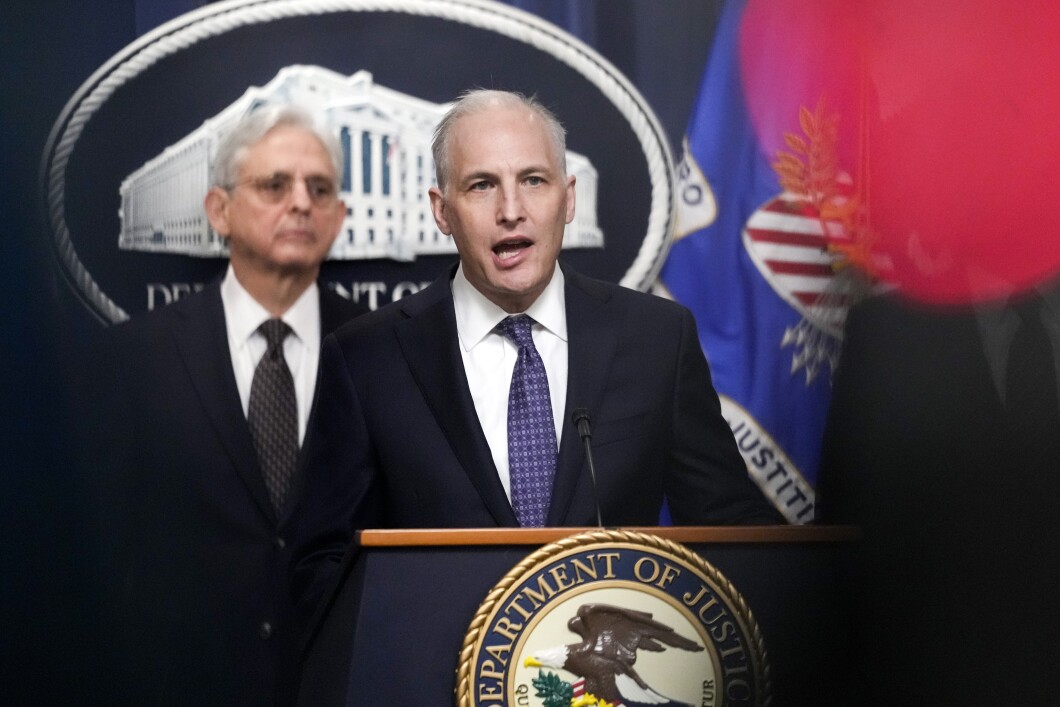
A watchdog agency that investigates U.S. national security programs is engaged in a dispute over proposed reforms to parts of the Foreign Intelligence Surveillance Act, splitting along party lines in a recent vote.
The law, involving a program in Section 702 of FISA, expires at the end of the year, and Congress will need to vote to reauthorize it. The Section 702 program allows warrantless surveillance of foreigners but can also tap into the communications of U.S. citizens.
GOVERNMENT SHUTDOWN: WHAT WILL BE OPEN AND WHAT WILL BE CLOSED
However, Democrats and Republicans are split on how to create new limits for federal authorities to use the program. The five-member Privacy and Civil Liberties Board issued a nearly 300-page report on Thursday in a partisan vote, three Democrats to two Republicans. The latter group proposed its own reforms in an annex to the report.
Both parties of the board agree that the program is necessary for national security and should be renewed by Congress. The report is nonbinding, but the panel offers significant influence on the subject.
“It is, in essence, two reports: A three-member report and a two-member report,” a senior Biden administration official told reporters on Wednesday per CNN. “The fact that there’s such division … makes it hard for the hill to know what exactly to do with two competing reports.”
The law, as it stands, allows U.S. intelligence to collect communication records of foreign persons based overseas, but it also allows FBI agents to search the data collected from people’s information in “backdoor searches.”
In their proposal, Democrats said intelligence and law enforcement officials should have to receive approval from the Foreign Intelligence Surveillance Court any time they want to use the 702 program database for information on U.S. citizens. A query must be “reasonably likely” to gather foreign intelligence information or evidence of a crime.

On the other hand, panel Republicans Beth Williams and Richard DiZinno said the Democrats’ proposal was “unmoored from any legal justification,” arguing that their new limits will “make it substantially more difficult to detect and thwart hostile foreign action, including acts of terror, against the United States,” per the report. The limits would also fail to provide any meaningful additional protections to people’s privacy, the Republicans said.
Some of the Republicans’ recommendations focused specifically on the FBI, where most widespread compliance violations have been reported over the last several years.
The GOP members recommended “cultural, structural, and procedural” reforms aimed at “re-establishing public trust in FBI” and limits that would “guard against the potential weaponization and misuse of the program for political or improper purpose.” These recommendations follow similar lines favored by congressional Republicans, who believe the FBI and Justice Department are “weaponized” for partisan agendas.
The Biden administration is, surprisingly, leaning toward Republicans instead of Democrats, as it has been publicly and privately lobbying Congress to make as few changes to FISA’s 702 program as possible since last year.
The Biden senior administration official said that the proposed requirement was “the worst of all worlds” and warned it could lead to delays in national security investigations; the executive branch would not be able to review information from search results without the federal intelligence court’s approval.
CLICK HERE TO READ MORE FROM THE WASHINGTON EXAMINER
FISA’s Section 702 has been the subject of scrutiny for several months. DOJ Inspector General Michael Horowitz raised concerns with the program’s “backdoor searches” before a House Judiciary Committee hearing in April.
A 2019 report from Horowitz criticized the DOJ and the FBI for at least 17 “significant errors and omissions” related to concealing information from the FISA court related to the Trump-Russia investigation, among other things.




